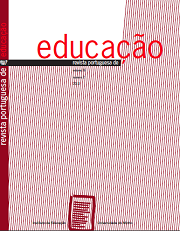O terceiro setor na educação de adultos: tensões e ambivalências
DOI:
https://doi.org/10.21814/rpe.3245Resumo
O terceiro setor tem ocupado um lugar importante na promoção da educação de adultos e na mudança social em comunidades locais que se encontram cada vez mais excluídas de processos hegemónicos de desenvolvimento económico. Todavia, muitas organizações têm adotado estratégias de mediação entre o Estado e as comunidades locais, no âmbito de parcerias, e passaram a partilhar com as empresas algumas características que põem em causa a sua autonomia e a sua capacidade de desenvolver projetos educativos de carácter crítico e emancipatório. Este artigo procura debruçarse sobre as transformações ocorridas no terceiro setor com intervenção na educação de adultos, a partir de dados recolhidos no quadro de um projeto de investigação que privilegiou o estudo de caso da política pública de educação e formação de adultos adotada após 1999 e implementada por uma associação de desenvolvimento local.
Palavras-chave
Educação de adultos; Terceiro setor; Política pública
Downloads
Downloads
Como Citar
Edição
Secção
Licença
1. Autores conservam os direitos de autor e concedem à revista o direito de primeira publicação, com o trabalho simultaneamente licenciado sob a Licença Creative Commons Attribution 4.0 CC-BY-SA que permite a partilha do trabalho com reconhecimento da autoria e publicação inicial nesta revista;
2. Autores e autoras têm autorização para assumir contratos adicionais separadamente para distribuição não-exclusiva da versão do trabalho publicada nesta revista (ex.: depositar em repositório institucional ou como capítulo de livro), com reconhecimento de autoria e publicação inicial nesta revista;
3. Autores e autoras têm permissão e são estimulado/as a publicar e distribuir o seu trabalho online (ex.: em repositórios institucionais ou na sua página pessoal), já que isso pode aumentar o impacto e a citação do trabalho publicado (Veja O Efeito do Acesso Livre).
Esta obra está licenciada sob uma Licença Creative Commons - Atribuição Compartilhamento pela mesma Licença Internacional 4.0





















